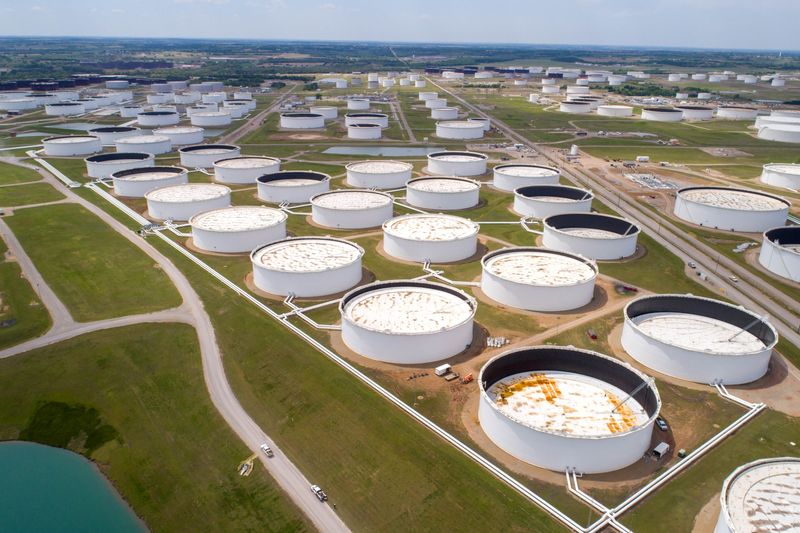
LONDON (Reuters) – Oil prices tumbled more than 4% to a near two-week low on Tuesday due to a weaker demand outlook and after a media report said Israel is willing to not strike Iranian oil targets, easing fears of a supply disruption.
Brent crude futures fell $3.51, or 4.5%, to $73.95 a barrel at 0911 GMT, their lowest since Oct. 2. West Texas Intermediate futures lost $3.48, or 4.7%, hitting $70.35 a barrel.
Both benchmarks had settled about 2% lower on Monday. They are down about $5 so far this week, nearly wiping out cumulative gains made after investors became concerned Israel could strike Iran’s oil facilities in retaliation for the latter’s Oct. 1 missile attack.
Israeli Prime Minister Benjamin Netanyahu told the U.S. that Israel is willing to strike Iranian military targets and not nuclear or oil ones, the Washington Post reported late on Monday.
Israel expanded its targets in its war against Hezbollah militants in Lebanon on Monday, killing at least 21 people in an airstrike in the north.
“Weakening demand has led to traders withdrawing the ‘war premium’ from prices,” said Priyanka Sachdeva, senior market analyst at Phillip Nova.
“However, geopolitics still continues to support oil at this level. Without geopolitics in the equation, oil would have tumbled even more, maybe even below $70 per barrel mark amid the current weakening demand narrative.”
Both the Organization of the Petroleum Exporting Countries (OPEC) and International Energy Agency (IEA) this week cut their forecasts for global oil demand growth in 2024, with China accounting for the bulk of the downgrades.

OPEC has projected a much stronger expansion of global demand for the year than the IEA. But its “run of lower adjustments is something of an admission of wishful thinking,” said John Evans at oil broker PVM.
China’s customs data showed that September oil imports fell from a year earlier, and the country’s economic growth is also likely to undershoot Beijing’s target for 2024, according to a Reuters poll.
This post is originally published on INVESTING.


